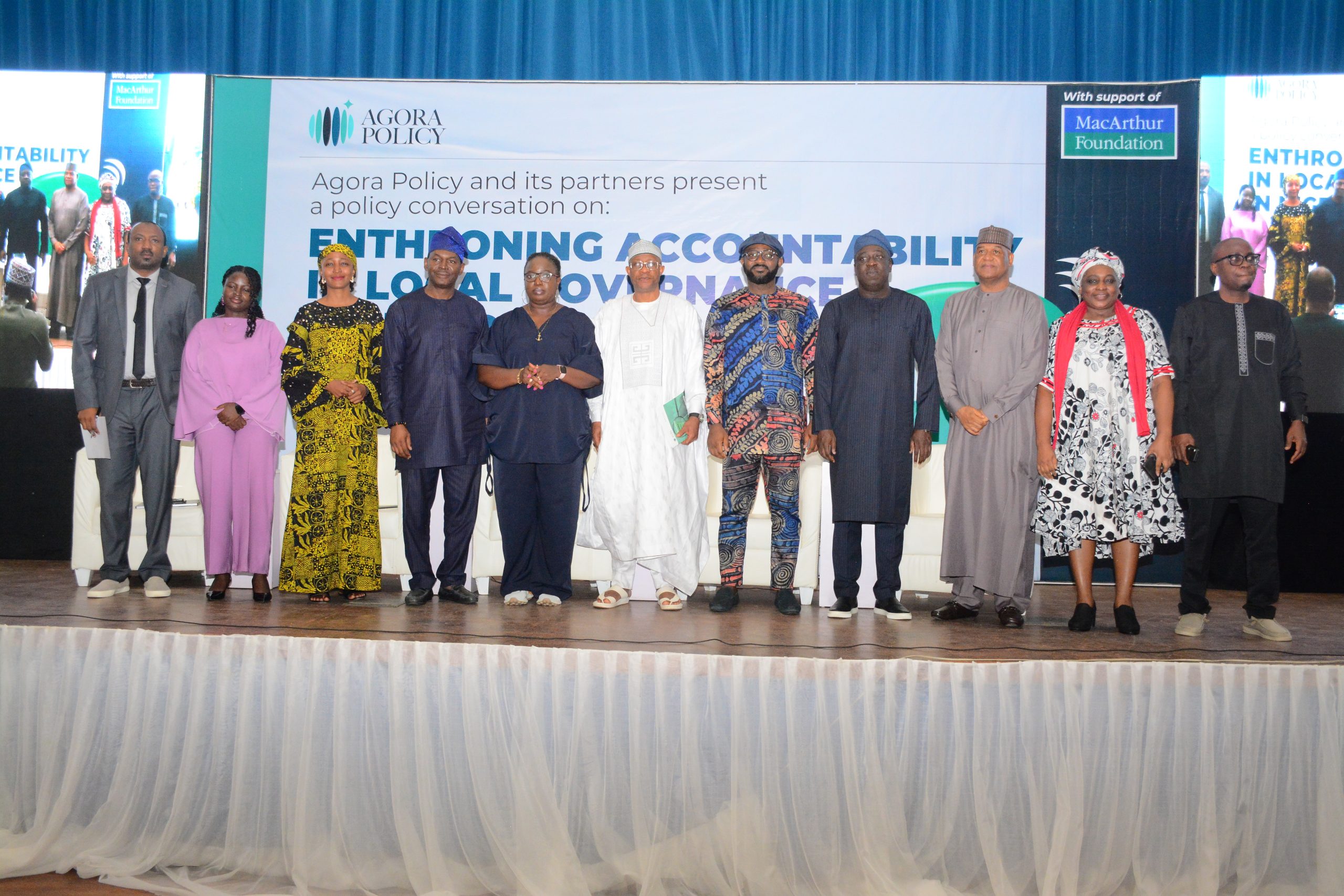Following the landmark July 11 ruling by the Supreme Court which authorized direct disbursement of the federation allocations to the local government, and also affirmed the illegality of running LGAs by caretaker committees appointed by state governors, which ultimately grants financial autonomy to the local government council, the Center for Fiscal Transparency and Public Integrity has partnered with Agora Policy, alongside Yiaga Africa, Budgit, Premium Times and the Cable to convey dialogue on how to enhance accountability in LG resource management.
The policy dialogue supported by the MacArthur Foundation was designed to reflect on the operations of LGAs and recommend practical ways of ensuring transparency and accountability in the management of the funds that will now be available for local councils.
Stakeholders at the dialogue bemoan the opacity, distrust and lack of accountability in managing resources accrue to local councils over the years despite their enormous and critical constitutional roles in driving societal development.
In his remarks, the Founder of Agora Policy, Dr. Waziri Adio, noted that the conversation on enthroning accountability in LG in Nigeria was timely and a critical touchpoint required to renew interest and empower stakeholders to demand accountability as a major step in reforming the “most important” tier of govt.
The conversation also touches on the need to reform the electoral process, with Dr. Otive Igbuzor, the Founding Executive Director of the African Centre for Leadership, Strategy & Development (Centre LSD) remarking that credible LG polls remain the first step to reaping the gains of financial autonomy for LG. Dr. Otive further identified the following steps crucial to enthroning accountability in LG governance including the need to strengthen internal budgeting systems, improved legislative oversight, independent monitoring mechanism, media oversight and active citizen participation.
The panel session observed among others that the current human resource composition of the local councils is grossly inadequate and inefficient to deliver good governance at the local level. It therefore recommended that there should be deliberate effort to capacitate the councils, and that well-meaning Nigerians and technocrats should not abandon local governance to political jobbers.
For us at the Center, we remain committed in advocating for measures that will promote integrity and transparency in the local governance. We believe that digitization of governance process will enhance access to information which will empower the citizens to demand accountability from their elected representatives. We expect the LGAs to act in compliance with provisions of extant legislations on proactive disclosure of information. From our assessment of the 774 LGAs in the Transparency and Integrity Index, it was fount that only seven (7) of the 774 LGAs in Nigeria have functional websites to display their activities. This stark reality highlights a major gap in the infrastructure necessary for ensuring transparency and public accountability in the local government system.
Stakeholders should therefore be concerned about the absence of transparency and accountability measures capable of undermining the very essence of financial autonomy, so as not to empower new 774 corrupt and opaque entities.
The Center remains committed to working with stakeholders to improve fiscal integrity and transparency throughout Nigeria. We believe that the move for financial autonomy will benefit greater number if local government administrators can embrace and entrench transparency and accountability measures in their operations.

